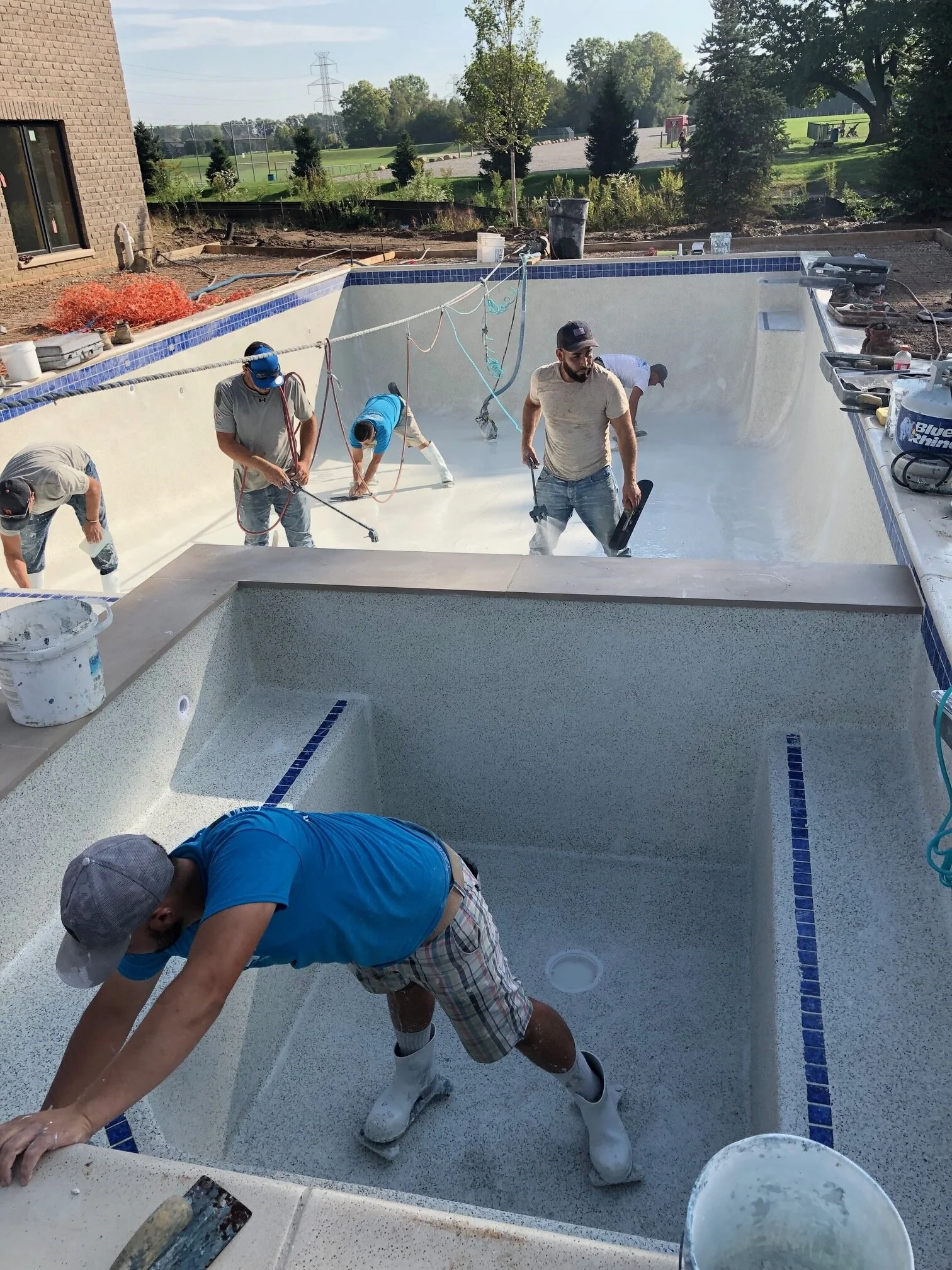Proper resurfacing
requires quality materials,
superior surface preparation,
excellent workmanship
and a solid warranty.
Material Selection
Pool surfaces need to be replaced and renovated, just like other parts of your home. Like anything that sees a great deal of use, swimming pool interiors wear out over time.
The good news is that your pool resurfacing options are much better than they were when your pool was originally built. Today’s pool and spa owners have many reliable and beautiful swimming pool finish options available to them. From the straight forward simplicity of standard white plaster to the rainbow of multi-colored pebble finishes, the choices can be exciting. The selection process, however, can also be somewhat daunting without reliable information. Classic Pool Plastering teams with its customers to educate them on different finish options, key characteristics and other considerations that may effect both the longevity and the overall final aesthetic for your pool and surroundings.
Surface Preparation
Bond Strength between the old and new pool surface is a critical factor in determining the overall performance, durability and longevity of the pool resurface. The goal in surface preparation is to create a clean, rough-patterned surface free of bond inhibiting materials.
Bond Coats, Chipping and Sand Blasting are three “traditional” surface preparation methods commonly used within our market. Unfortunately, these methods do not provide the best level of adhesion between the new plaster and pool shell and, in some cases, actually risk damaging the pool structure.
Classic Pool Plastering performs its pool resurfacing work using the most advanced, proven surface preparation method available, Ultra-High Pressure (UHP) Water Blasting (also known as “40K Water Jetting” and “Hydro Blasting”). This method utilizes water blasted at pressures up to 40,000 PSI to remove the existing pool plaster and, simultaneously, create a superior anchor pattern for the new plaster to adhere to.
Workmanship
At Classic Pool Plastering our skilled tradesmen use the traditional method of hand-applying two coats of plaster, working the material to create a smooth surface at the ideal thickness. This flat, smooth, hand-troweled finish provides the water-tightness needed for a perfect swimming pool surface.
Our reputation for the highest quality workmanship in swimming pool plaster, pool tile, and coping is unmatched. With over a decade of plastering and restoration work experience on hundreds of in-ground pools and spas, you can count on Classic Pool Plastering to get your project completed with the highest standards.
Warranty
We pride ourselves on using quality materials, the best methods and excellent workmanship, and stand behind all the work that we do.
Classic Pool Plastering’s products and services are backed by warranties that exceed the standard in our market and help you protect your investment.
What to expect, from start to finish, when resurfacing your pool.
Step 1: Drain the pool and relieve the hydrostatic pressure.
Step 2: UHP water blast (@ 40,000 PSI) the original plaster surface to remove all organics, paint, weak plaster, and to create a superior anchor pattern for the new pool finish. This is the best prep process available for your pool. It is unmatched in the pool industry.
Step 3: Install new tile, coping and other items (if applicable).
Step 4: Apply the new surface finish. The selected finish will be mixed on-site and hand troweled. Note that plaster pools will be filled immediately. Pebble finishes are acid washed 1-2 days later and then filled.
Step 5: When your pool is completely filled, one of our experienced staff will come out to do a thorough walk through, go over pool care for your new finish and collect final payment.
Step 6: Enjoy your new pool!





